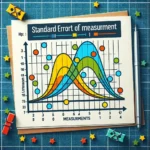**G Factor (General Intelligence)** **Definition:** The g factor, also known as general intelligence, is a construct used in the field of psychology to quantify what is common to the scores of all intelligence tests. First proposed by British psychologist Charles Spearman in the early 20th century, the g factor represents the cognitive abilities that contribute […]










